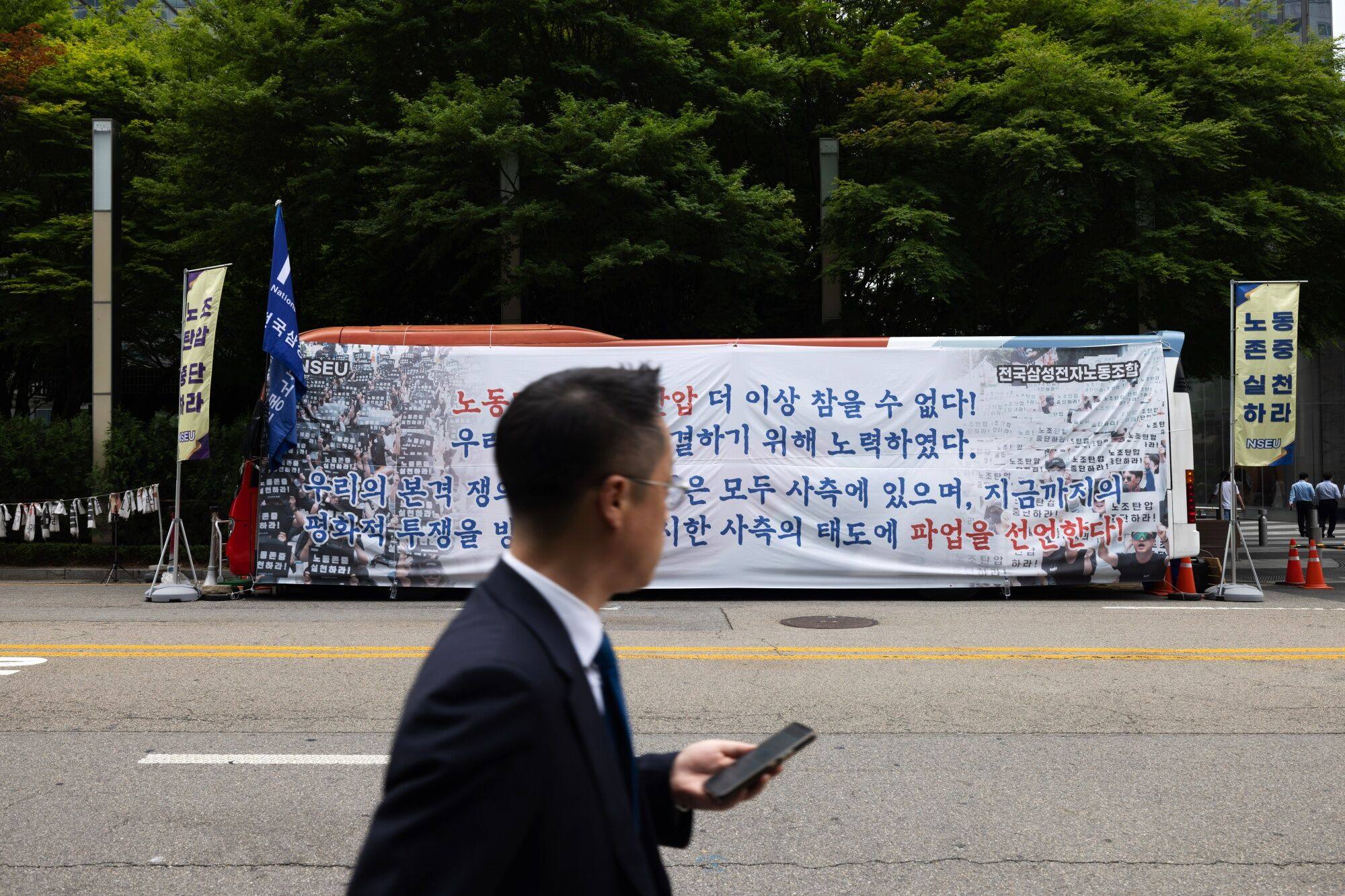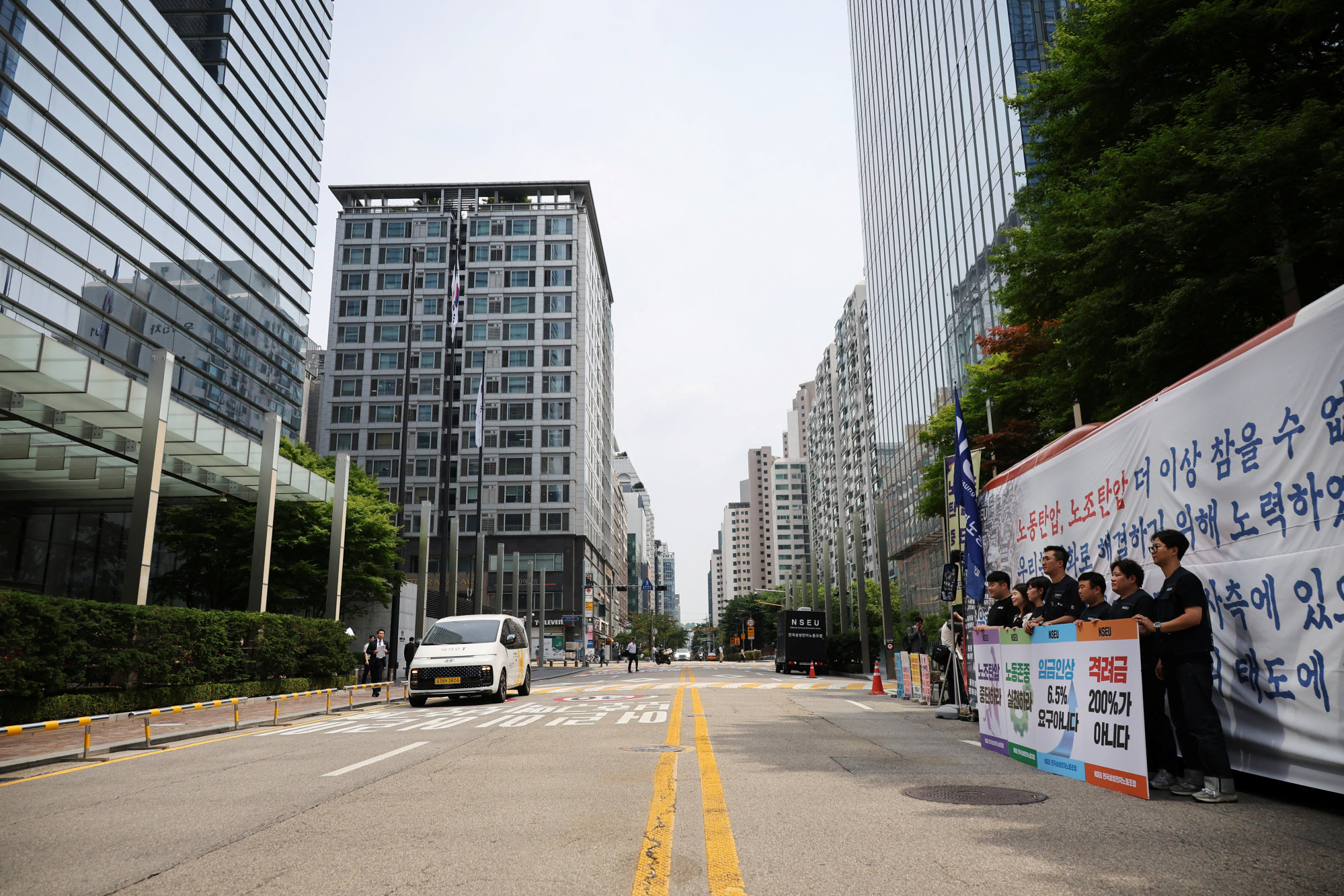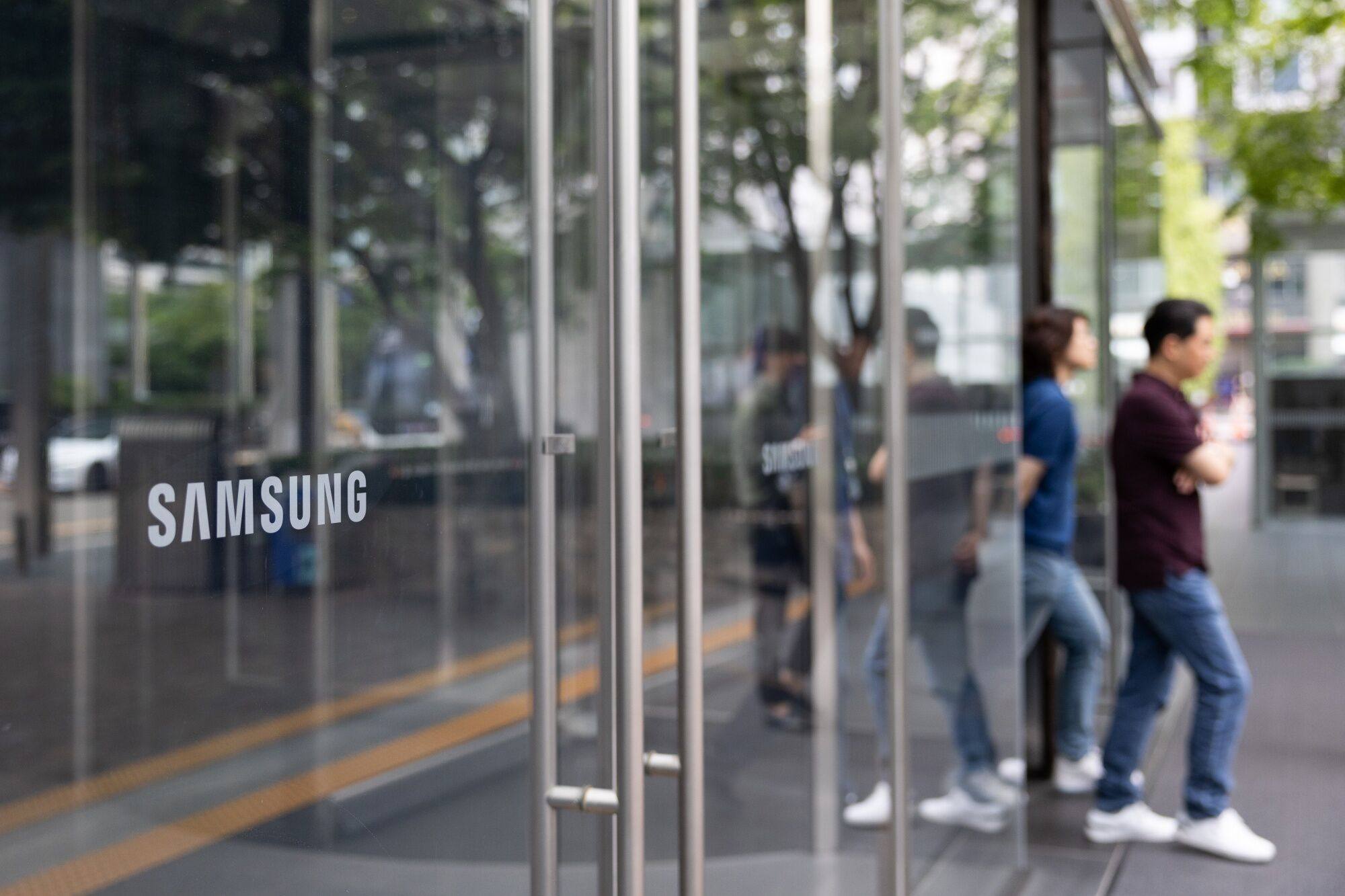Lee Hyun-kuk, vice-president of the National Samsung Electronics Union, said Friday’s collective action was “largely symbolic, but it’s a beginning”.
“We have plans for follow-up strikes if the management is not willing to communicate with us openly,” Lee said.
“The union is not ruling out an all-out general strike.”

Union head Son Woo-mok added that the “first strike at Samsung Electronics” was taking place through “the use of paid leave, and it is understood that many employees are participating”.
“It’s difficult to provide an exact number, but from what I’ve seen of the workplace attendance in the morning, there is a significant difference from the usual,” he said.
Samsung Electronics said it has been “diligently engaging in negotiations with the union and will continue to do so”, and that there is “no impact on production and business activities”.
The paid leave usage rate on Friday was “lower than that of June 5 last year”, which, like Friday, was sandwiched between a public holiday and a weekend, the company said in a statement.
Around 10 workers held a protest in front of Samsung’s major office in Seoul on Friday, chanting, “Respect labour!”

Samsung Electronics is the flagship subsidiary of South Korean giant Samsung Group, by far the largest of the family-controlled conglomerates that dominate business in Asia’s fourth-largest economy.
The company has offered workers a pay hike of 5.1 per cent this year.
The union said on Friday it “is willing to positively review” that offer if Samsung also provides an additional day of annual leave and transparent performance-based bonuses.
Taiwan-based market research firm TrendForce said the strike would not impact Dram and Nand Flash production, nor would it cause any shipment shortages.
Samsung accounts for a significant chunk of global output of the high-end chips, but the strike involves headquarters employees, not workers on the production lines, TrendForce said in a report.
“Finally, fabs rely heavily on automated production and require minimal human labor. Therefore, the strike will not have any substantial impact on the future memory supply,” the report said.
Even so, the strike carries historical importance, “since Samsung resisted unionisation and engaged in union-busting for so long”, said Vladimir Tikhonov, a professor of Korean Studies at the University of Oslo.
He said the collective action showed that “there is a gradual tendency towards empowerment of labour in South Korea”.

Samsung Electronics avoided the unionisation of its employees for almost 50 years – sometimes adopting ferocious tactics, according to critics – while rising to become the world’s largest smartphone and semiconductor manufacturer.
Samsung founder Lee Byung-chul, who died in 1987, was adamantly opposed to unions, saying he would never allow them “until I have dirt over my eyes”.
The first labour union at Samsung Electronics was formed in the late 2010s.
In 2020, Lee Jae-yong, the company’s then-vice-chairman and the founder’s grandson, apologised to “everyone who has been pained by labour issues at Samsung”, adding he would “make sure” the company “is not criticised for union-free management”.
Still, the National Samsung Electronics Union, which has around 28,000 members, or more than a fifth of the company’s total workforce, has said the word “strike” has been a “taboo word” at the tech giant.
Union deputy Lee said the strike won’t “lead to a disruption in production and we don’t want it to lead into one”.
“We just want Samsung to hear our voice,” he said.
They are South Korea’s leading export and hit US$11.7 billion in March, accounting for a fifth of total exports, according to trade ministry figures.
Shares of Samsung Electronics closed down 0.13 per cent on Friday.

